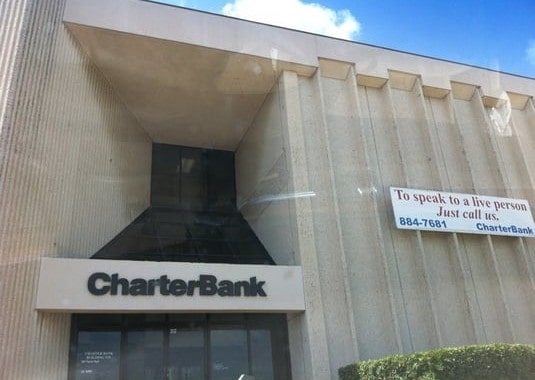The Department of Justice and Charter Bank of Corpus Christi, Texas have announced the settlement of the fair lending suit referred to the DOJ by the Federal Deposit Insurance Corporation.
This suit is one of a long line of fair lending legal actions brought by regulators. While the provisions of the settlement contain some familiar provisions, there are also a few unique elements in the settlement that are worth noting—especially for smaller institutions.
Background
Charter Bank is a $268 million FDIC institution based in Corpus Christi, Texas that offers a variety of credit products including consumer loans, mortgages and commercial products. Its loans are originated through loan officers and other employees in its branches. The issue in this consent order is the interest rate being charged to customers who borrow against the equity in their automobiles. These are not car loans in the sense of the loan proceeds being used to purchase a car. During the investigation period, the average loan was $10,600, and the average interest rate was 13.5%.
Regulating a small institution
In addition to the typical enforcement provisions of the consent order there a few relatively distinctive elements in this settlement. The first distinguishing element in this settlement is the size of Charter – $268 million. Once again we are seeing that being small does not make an institution a safe-haven from the FDIC.
It’s also interesting to note that while the FDIC suit covered the period July 31,2012 to August 31, 2013, the DOJ analysis covered a much longer period, January 1, 2009 to June 30, 2014. Roughly doubling the analysis period accentuates the data collection problems for many smaller institutions.
Furthermore, while the FDIC often does not use BISG proxies, the DOJ does use BISG. It seems reasonable, therefore, that smaller banks become familiar with the BISG proxy methodology and perhaps test the prohibited basis results using that methodology.
The consent order
The consent order also requires that the bank’s future pricing policies include:
- limits on the amount by which interest rates can deviate from the bank’s rate sheet
- what pricing factors the loan officer can consider when planning to deviate from the rate sheet rate
- the rationale for any deviation from the rate sheet price
Additionally, the bank must monitor for statistically significant disparities, if any, in interest rates between prohibited basis and non-prohibited basis applicants on a quarterly basis. This disparity report should be reviewed and approved by senior management and the Board of Directors. Furthermore, the bank should determine the reasons why the disparities occurred and make modifications to its policies and procedures.
Lastly, the bank is expected to make financial restitution where warranted. The amount of the restitution each applicant is to receive will be determined by the DOJ.
Conclusions
The provisions of this consent order are not new. And the lesson to be learned is to be proactive about your fair lending monitoring. Each institution is unique; hence the approach your bank takes may be different from another similarly-sized bank.
If you are concerned about where to start and or have questions about the elements of a fair lending monitoring program, Preiss&Associates is happy to discuss your questions with you. We may be reached at rpreiss@preissco.com or 847-295-6881.
